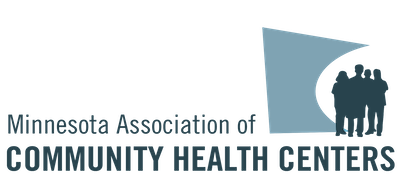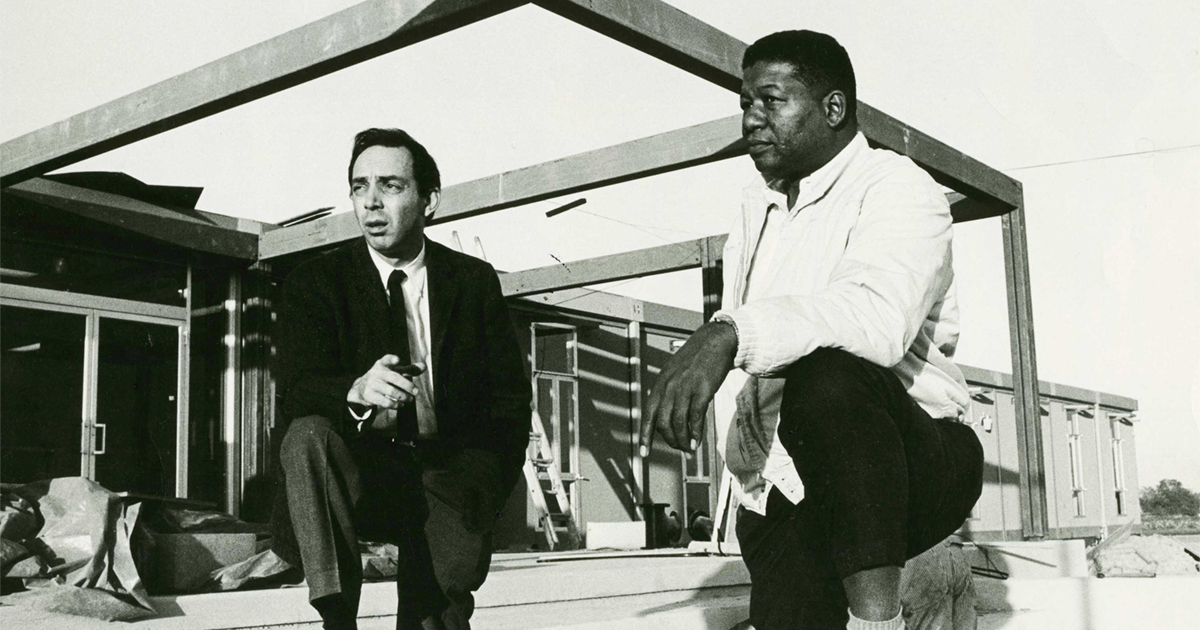What is a Community Health Center?
For more than 55 years, community health centers, also referred to as health centers and Federally Qualified Health Centers (FQHCs), have been at the core of this country's safety-net health care system. The American community health center movement began in 1965 with just two health centers, inspired by the American civil rights movement and modeled after community clinics in South Africa. . Today it has grown into a national primary care network of nearly 1,400 health centers operating roughly 13,000 delivery sites and serving over 30 million people each year in communities across the Nation.
Minnesota is home to 17 of these remarkable community health centers that operate over 80 sites and care for nearly 200,000 low-income people. Click here to find a health center near you.
Click the image to learn more about the patients we serve!
Dr. H. Jack Geiger and John Hatch
Community health centers:
Ensure programs and services are designed with authentic community and patient engagement.
Mandate that 51% of their governing Board of Directors be their patients.
Connect and serve patients where they live and work and are located in designated medically underserved areas.
Champion comprehensive, high-quality medical, dental, and behavioral health services under one roof regardless of a patient's ability to pay.
Empower and employ a diverse workforce and promote interprofessional care teams that build health interventions in partnership with patients.
Promote access to care by integrating health and social service needs while combating socioeconomic barriers to care.
Collaborate extensively with other safety-net organizations, federal and local health departments, coalitions, funders, elected officials, and more to improve access to care and ensure the community remains connected to resources that address social determinants of health.
The following four videos feature a number of Minnesota’s 17 incredible community health centers.
CHC 101
Our Patients
Our Staff
Community Partnerships
-
Community Health Centers (or FQHCs) are incredible assets to the communities they serve. If you are considering applying to become an FQHC or an FQHC Look-Alike, please read the below information.
An important first step in determining if an FQHC is a fit for your community is to identify what health centers currently exist in your area. Click here to view a map of health center sites. If a health center is currently serving your area, you may want to consider partnering with an existing health center.
-
Though there are many regulatory hoops to jump through on a journey to become a federally qualified health center, there are also many benefits.
Federal Dollars to Serve the Uninsured - FQHCs receive annual ongoing grant funding from the federal government (“Section 330 Grants”) to offset the costs of uncompensated care and other key enabling services.
Malpractice Coverage - The Federal Tort Claims Act (FTCA) provides free malpractice liability coverage to FQHC Board members, employees including clinicians, and certain contracted clinicians for acts conducted within the scope of the FQHC’s project. Click here to learn more about the FTCA.
Workforce Recruitment and Retention - The National Health Service Corps program provides FQHC providers with health profession scholarships and loan repayment. Students may become eligible for scholarships in exchange for a promise to work in a Health Professional Shortage Area (HPSA), while current health professionals can receive loan repayment assistance if they work with approved organizations in an HPSA.
Enhanced Medicare and Medicaid Reimbursement - FQHCs receive cost-based reimbursement for services to Medicare patients, and Prospective Payment System (PPS) reimbursement for Medicaid patients.
“First Dollar” Reimbursement Under Medicare - FQHCS receive reimbursement by Medicare for “first dollar” of services because the deductible is waived if FQHC is providing the Medicare services.
Favorable Prescription Drug Prices for Patients - The federal 340B program allows FQHCs to purchase covered outpatient prescription pharmaceuticals for patients at substantially discounted prices. The FQHC may distribute the pharmaceuticals through their in-house pharmacy or through contract with a retail pharmacy. Click here to learn more about the 340B program.
Capital Investments - FQHCs are eligible to receive grant support and loan guarantees for capital improvements.
-
There are many requirements an organization must meet prior to applying for FQHC designation. Broadly, an FQHC must meet the following:
Not-for-Profit Corporation - FQHCs must be a private not-for-profit or a public organization.
Comprehensive Primary Care - FQHCs must provide the required primary health services listed in section 330(b)(1) of the PHS Act, directly and/or by contract. In addition, the FQHC must provide “supportive services” (e.g., patient education, translation, outreach) that promote access to care.
Located or Serve a High Need Community - The FQHC must provide care to either a Medically Underserved Area (MUA) or serve a Medically Underserved Population (MUP). To learn more about the MUA/ MUP designation, click here.
Sliding Fee Schedule for the Uninsured - The FQHC must have a schedule of fee discounts for services based upon the patient’s family income and size.
Independent, Community-Based Board of Directors - FQHCs boards must reflect the larger community that utilizes health center services and are mandated to ensure that at least 51% of their board members are regular consumers of the health center and that they are independent and exercise key authorities.
In addition to these broad areas, there are specific HRSA Requirements that all FQHCs must meet. Click here for a full exploration of the expansive FQHC requirements.
-
Funding for new FQHCs is announced periodically by HRSA based on funding allocated by Congress. As a key step in preparation, MNACHC encourages applicants to make sure your location or population served is eligible and that you have community support.
The National Association of Community Health Centers (NACHC), provides a broad range of services and trainings. NACHC has created “So You Want to Start a Health Center…? A Practical Guide for Starting a Federally Qualified Health Center” to assist those interested in starting an FQHC. HRSA has also created a webpage on “How to Become a Health Center.”
Interested in learning more or have questions?
Send us a message!


